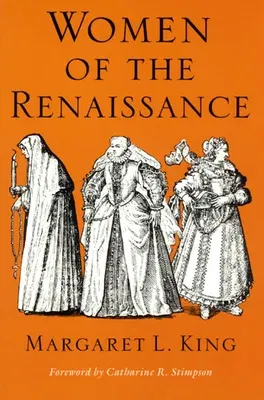Margaret L King
(Author)Women of the RenaissancePaperback, 15 December 1991

Qty
1
Turbo
Ships in 2 - 3 days
In Stock
Free Delivery
Cash on Delivery
15 Days
Free Returns
Secure Checkout

Part of Series
Women in Culture and Society
Part of Series
Women in Culture & Society (Paperback)
Print Length
350 pages
Language
English
Publisher
University of Chicago Press
Date Published
15 Dec 1991
ISBN-10
0226436187
ISBN-13
9780226436180
Description
Product Details
Author:
Book Format:
Paperback
Country of Origin:
US
Date Published:
15 December 1991
Dimensions:
22.78 x
15.44 x
1.96 cm
ISBN-10:
0226436187
ISBN-13:
9780226436180
Language:
English
Location:
Chicago, IL
Pages:
350
Publisher:
Weight:
498.95 gm